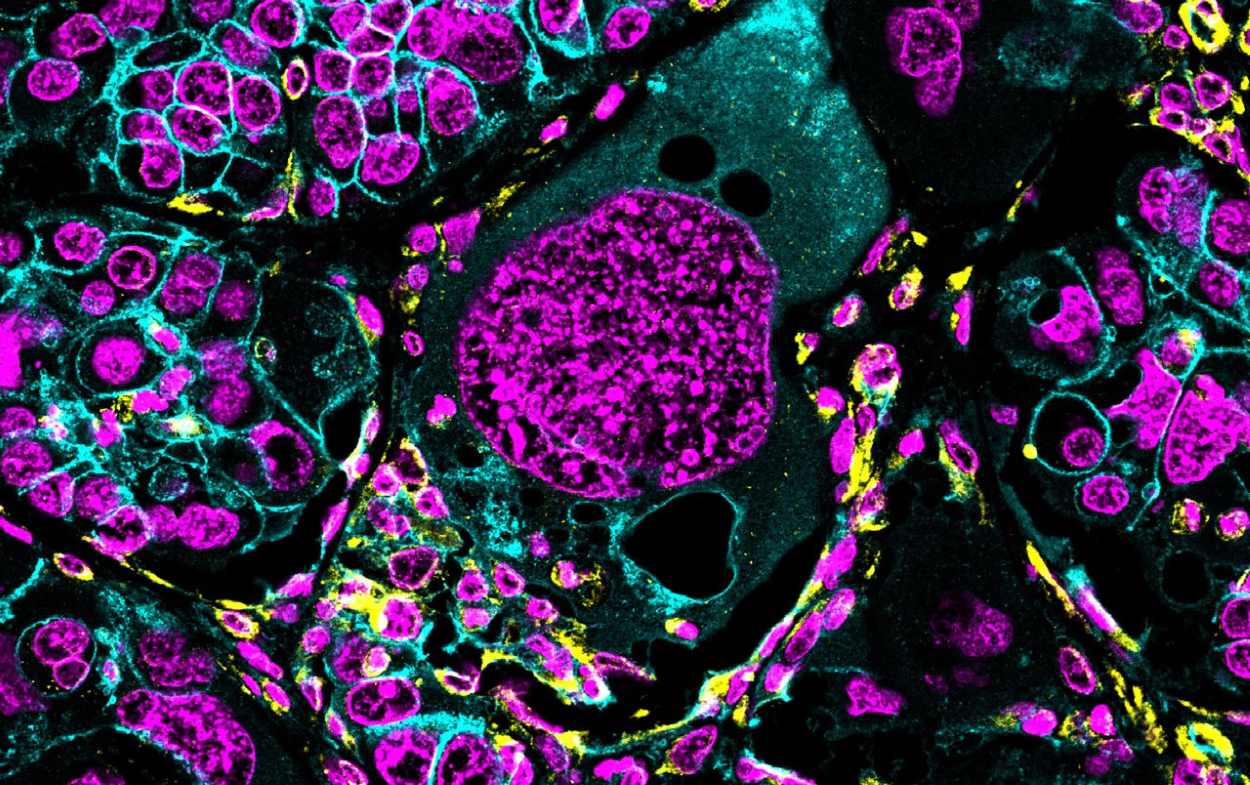Researchers at The Medical University of South Carolina (MUSC) Hollings Cancer Center have discovered why cancer may recur after treatment. Their study focuses on polyploid giant cancer cells (PGCCs), which are large and multi-nucleated.
These treatments aim to destroy cancer cells, but often, they adapt and survive. PGCCs have been known for a long time, but their role in cancer recurrence was not understood until now.
A team led by Christina Voelkel-Johnson, Ph.D., at Hollings Cancer Center, has identified genes that prostate cancer cells alter to become PGCCs. These changes help them withstand treatment.
The team found that PGCCs can later divide, contributing to cancer’s return. Their findings were published in the Journal of Biological Chemistry.
Unexpected Discoveries in Lab Experiments
The team made a key discovery during experiments with a treatment inhibitor and radiation. Initially, they believed the combination killed cancer cells more effectively.
However, extended experiments showed no initial difference. Over time, they observed that giant cells, though non-viable, were producing smaller cells.
These PGCCs were different in appearance from typical cancer cells. They duplicated their genetic material without dividing their cytoplasm, becoming oversized.
The inhibitor did not enhance cell killing but stopped PGCCs from producing offspring.
Genetic Insights and Therapeutic Implications
The research team uncovered how cancer cells under treatment stress transform into PGCCs and revert to normal cell division. They focused on a protein, p21, which behaves unusually in cancer cells lacking p53.
P21 fails to stop damaged DNA duplication in these cells, promoting PGCC formation. Blocking p21 prevented the formation of new cancer cells, leading to tumour relapse.
The findings suggest new targets to improve outcomes after cancer therapy. While directly blocking p21 may not be viable, drugs like tamoxifen and statins could help.
These drugs should be used with chemotherapy or radiotherapy to prevent PGCC formation. Voelkel-Johnson plans further research on preventing PGCC-derived cell production and the effects of combination treatments on recurrence rates.
The National Cancer Institute, the National Institutes of Health, and the American Cancer Society funded the study.






